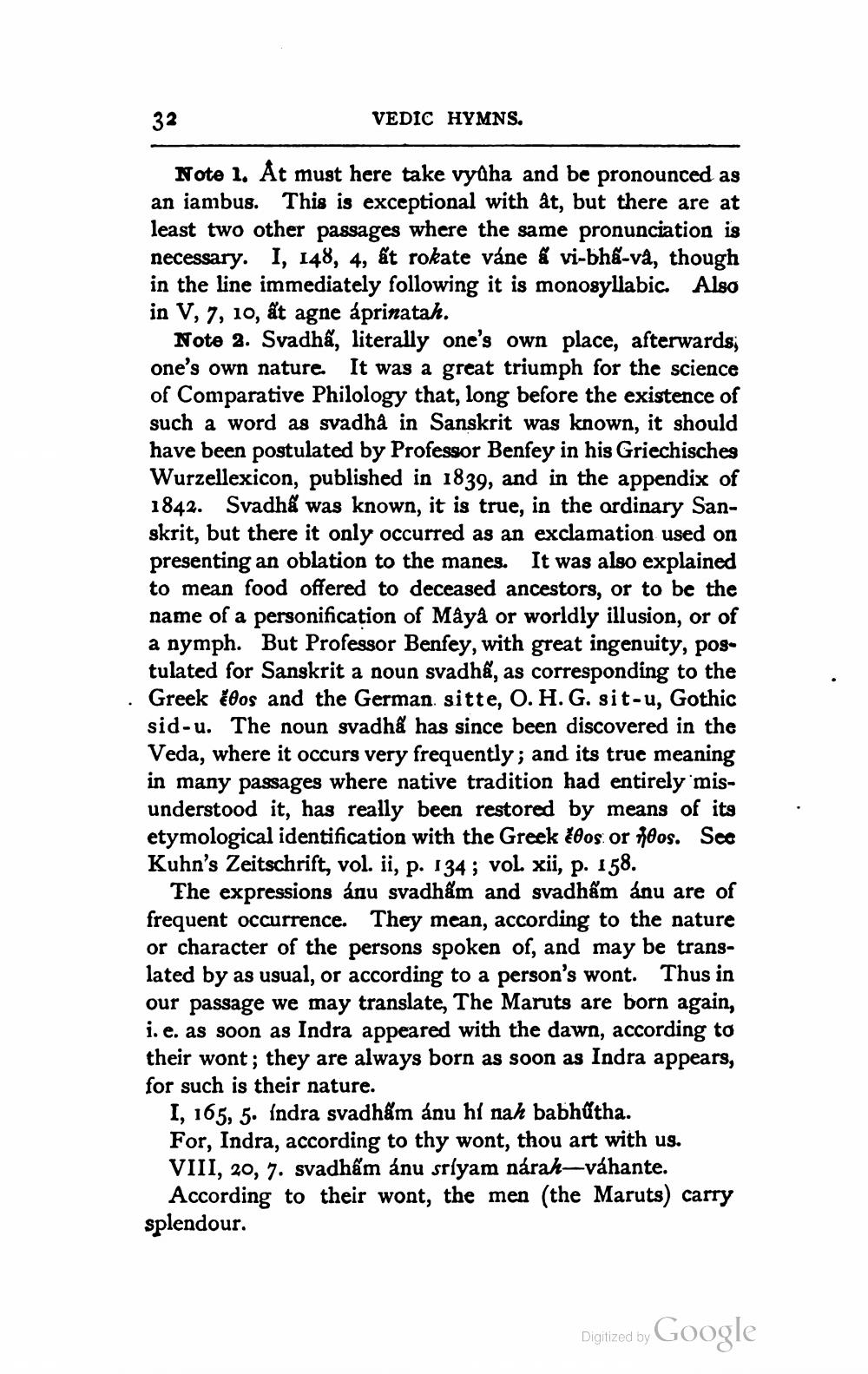________________
32
VEDIC HYMNS.
Note 1. At must here take vyûha and be pronounced as an iambus. This is exceptional with ât, but there are at least two other passages where the same pronunciation is necessary. I, 48, 4, ất rokate váne & vi-bha-va, though in the line immediately following it is monosyllabic. Also in V, 7, 10, at agne áprinatah.
Note 2. Svadha, literally one's own place, afterwards; one's own nature. It was a great triumph for the science of Comparative Philology that, long before the existence of such a word as svadhâ in Sanskrit was known, it should have been postulated by Professor Benfey in his Griechisches Wurzellexicon, published in 1839, and in the appendix of 1842. Svadha was known, it is true, in the ordinary Sanskrit, but there it only occurred as an exclamation used on presenting an oblation to the manes. It was also explained to mean food offered to deceased ancestors, or to be the name of a personification of Mâyâ or worldly illusion, or of a nymph. But Professor Benfey, with great ingenuity, postulated for Sanskrit a noun svadha, as corresponding to the Greek 00s and the German sitte, O. H. G. sit-u, Gothic sid-u. The noun svadha has since been discovered in the Veda, where it occurs very frequently; and its true meaning in many passages where native tradition had entirely misunderstood it, has really been restored by means of its etymological identification with the Greek 00s or 10os. See Kuhn's Zeitschrift, vol. ii, p. 134; vol. xii, p. 158.
The expressions ánu svadhẩm and svadhẩm ánu are of frequent occurrence. They mean, according to the nature or character of the persons spoken of, and may be translated by as usual, or according to a person's wont. Thus in our passage we may translate, The Maruts are born again, i. e. as soon as Indra appeared with the dawn, according to their wont; they are always born as soon as Indra appears, for such is their nature.
I, 165, 5. índra svadhẩm ánu hí nak babhutha.
For, Indra, according to thy wont, thou art with us. VIII, 20, 7. svadhẩm ánu sríyam nárah-váhante. According to their wont, the men (the Maruts) carry splendour.
Digitized by Google




